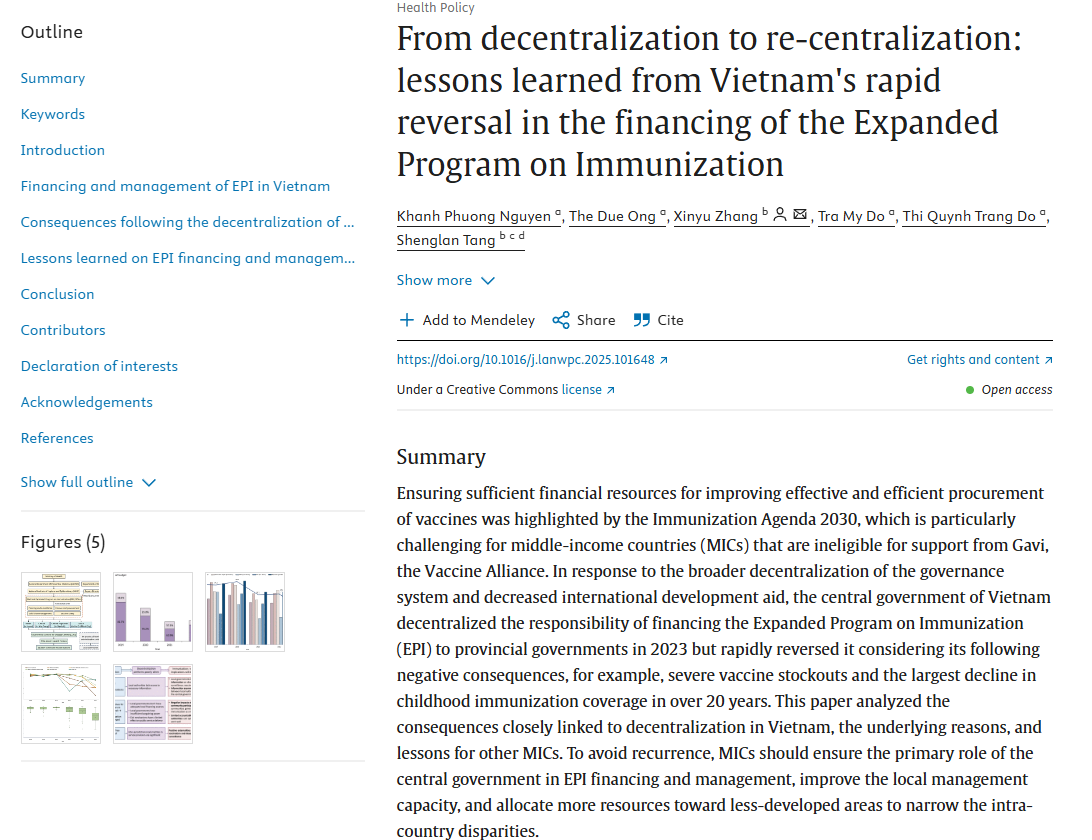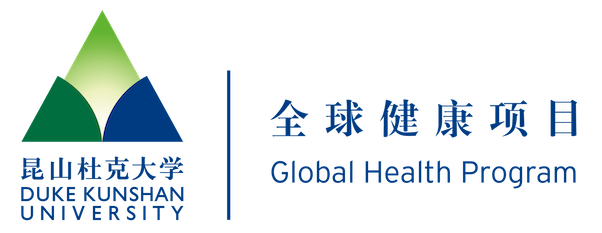A new study by researchers from Duke University, Duke Kunshan University, and the Health Strategy and Policy Institute (HSPI) in Vietnam sheds light on the challenges and lessons for immunization financing in middle-income countries (MICs).

Over the past decade, external funding from organizations like Gavi gradually decreased, pushing Vietnam toward greater independence for immunization financing.
“Securing sufficient financial resources for effective and efficient vaccine procurement now becomes an especially difficult task for MICs that no longer qualify for Gavi support,” said Prof. Shenglan Tang, Co-Director of the Global Health Research Center at Duke Kunshan University, and co-author of the study.
In 2023, Vietnam placed a rapid shifting in the financing and procurement of vaccines for its Expanded Program on Immunization (EPI) – from a decentralized to a re-centralized system.
Before 2023, the central government was responsible for funding EPI vaccines, logistics, software management, compensation activities, and operational costs for hard-to-reach areas. Local governments were, to a large extent, required to cover operational costs, the cold chain system, and other expenses to sustain EPI activities. Since January 2023, as stipulated by the Budget Law of Vietnam, the responsibilities for EPI financing and vaccine procurement were decentralized from the central budget to local budgets
The researchers found that while the decentralization policy aimed to give provinces more autonomy and accountability, it created a series of unintended and severe consequences – including direct procurement issues, insufficient financing, and widespread vaccine shortages due to limited technical and fiscal readiness at the provincial level.
Decentralization, together with the lingering effects of the COVID-19 pandemic, also contributed to severe backsliding in vaccine coverage, larger coverage disparities across different regions, and a higher risk of VPD outbreaks.
Fortunately, the Government of Vietnam recognized the severe consequences of EPI decentralization and promptly switched back to centralization in the same year. To address the shortage of EPI vaccines and stabilize vaccine supply, the Government issued a resolution to allocate the central budget for 2023 to MoH for vaccine procurement in July 2023.
“The Vietnam case offers valuable lessons for other MICs, especially those preparing to transition from donor-supported immunization to a domestic-financing model,” said Dr. Xinyu Zhang, corresponding author of the research, and Research Assistant Professor at the Duke Kunshan University.
The research team provided recommendations for other middle-income countries, including to ensure the primary role of the central government in EPI financing and operation, improve the local management capacity, particularly regarding vaccine procurement, and narrow the intra-country disparities by allocating more resources toward less-developed areas.
Article link: https://doi.org/10.1016/j.lanwpc.2025.101648

